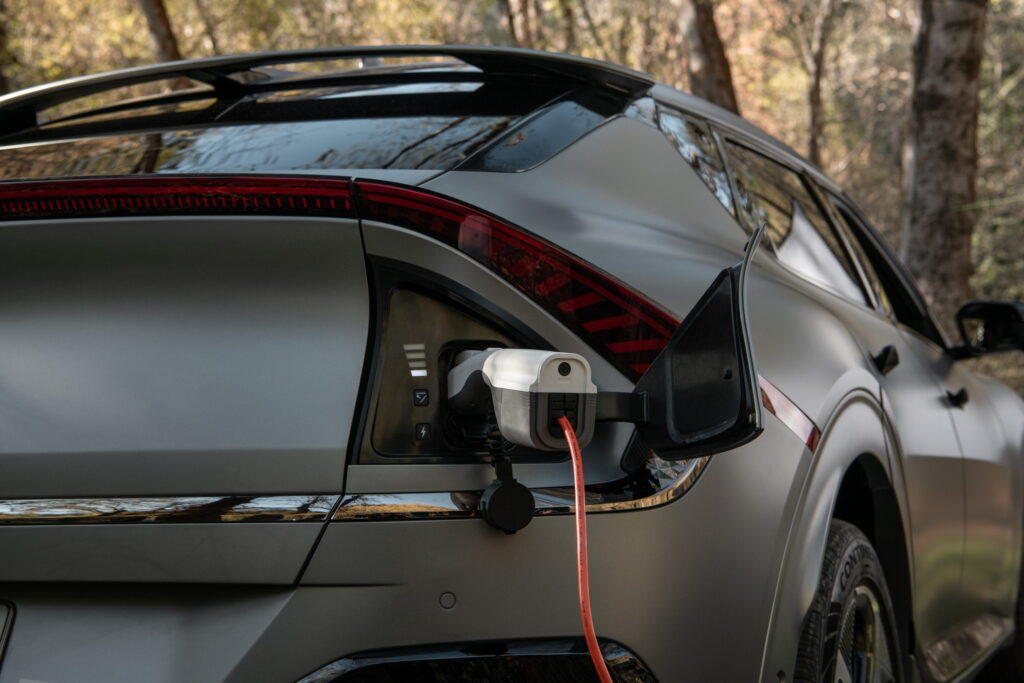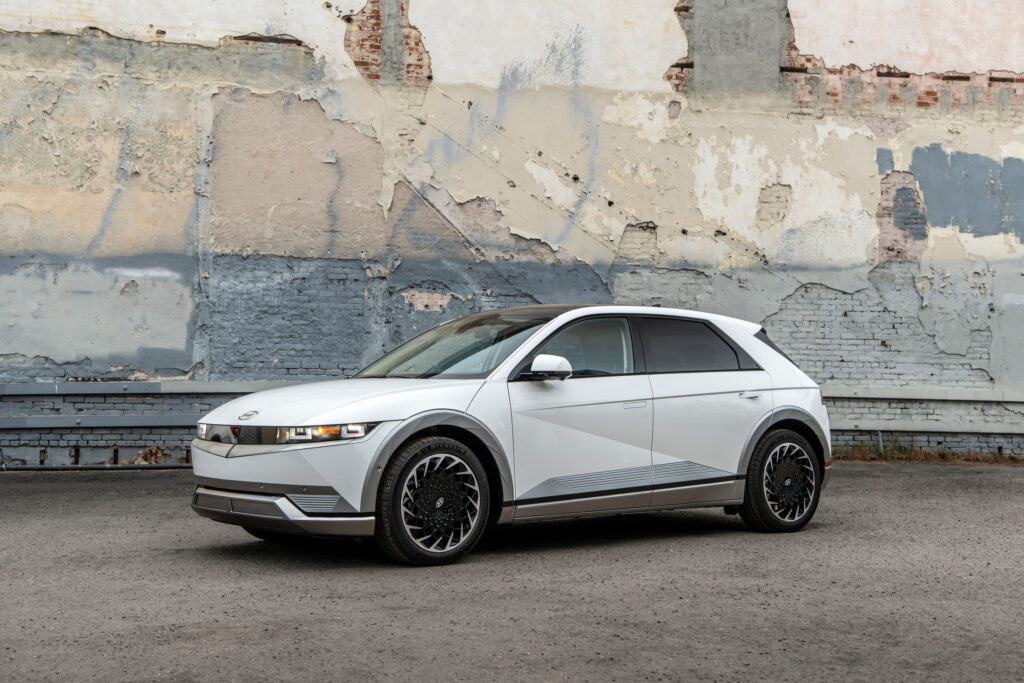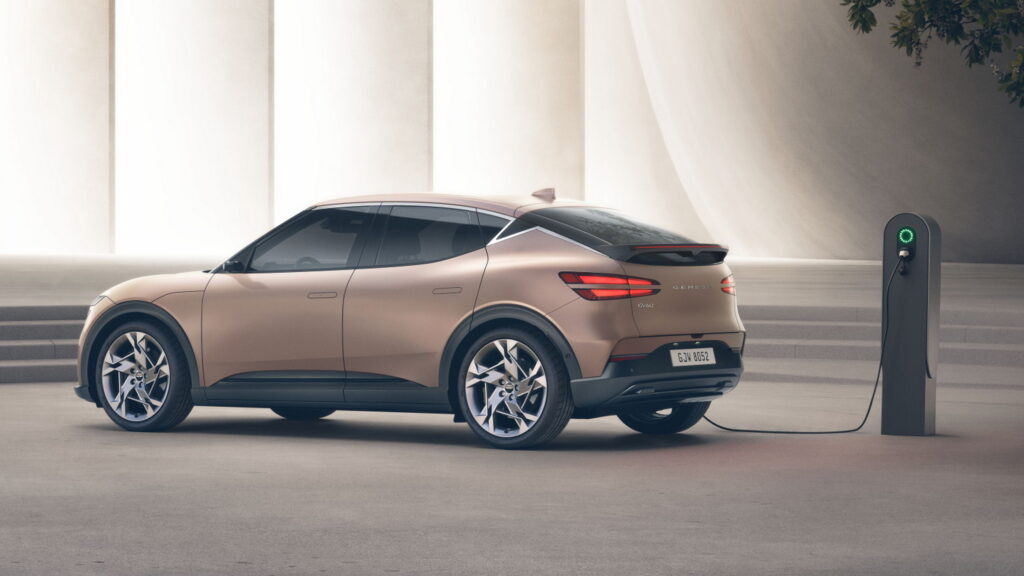The rate at which Hyundai Group electric vehicles can actually charge when plugged in at home is at the heart of a newly launched nationwide class-action lawsuit. Plaintiffs claim that a defect in the plug port means that it overheats while the vehicle is performing level 2 charging, dramatically slowing energy recuperation speeds.
The lawsuit, filed in United States District Court in the Central District of California, cites owner complaints, videos outlining the alleged flaw, and the Hyundai Group’s own efforts to remedy the situation as evidence of a problem for which owners are entitled to compensation.
While Hyundai cites a Level 2 home-charging time of between five and seven hours, owners have noted significantly slower speeds. The plaintiffs allege that is the result of overheating in the plug, which prolongs charging or makes it impossible.
Read: Hyundai, Kia To Pay $200 Million To Settle Class Action Lawsuit Over TikTok Inspired Thefts

Hagans Berman Sobol Shapiro LLP is representing the class of plaintiffs and reports that in some instances, the charging plug can overheat in as little as 30 minutes, leaving owners with little range to go about their daily driving.
Indeed, the National Highway Traffic Safety Administration’s website lists a number of complaints from owners relating to this issue. One owner said earlier this month that their vehicle app reported a “charging failure” every two to three minutes, though their vehicle did eventually fully charge.
In addition, the plaintiffs claim that a software update designed to fix the issue is little more than a band-aid, and throttles charging speeds in order to prevent overheating, leaving owners with charging times of 10 hours or more.
“Not only do Hyundai, Kia, and Genesis continue to sell vehicles that are clearly incapable of performing as advertised, they also issued a software patch which substantially worsens charging rates and widens the gap between what they promised and what they delivered,” said Steve Berman, managing partner at Hagens Berman. “Unexpectedly finding a car with an uncharged battery in the morning causes serious disruption to people’s lives and could have dire consequences in an emergency.”
The vehicles implicated in this class-action lawsuit are the Hyundai Ioniq 5, the Ioniq 6, the Genesis GV60, and the Kia EV6. Hagans Berman says it is bringing claims of violations of the Computer Fraud and Abuse Act, violations of the California Computer Data Access and Fraud Act, and violations of applicable state consumer protection laws against the Hyundai Group.
We have reached out to Hyundai for comment and will update this story when we hear back.





